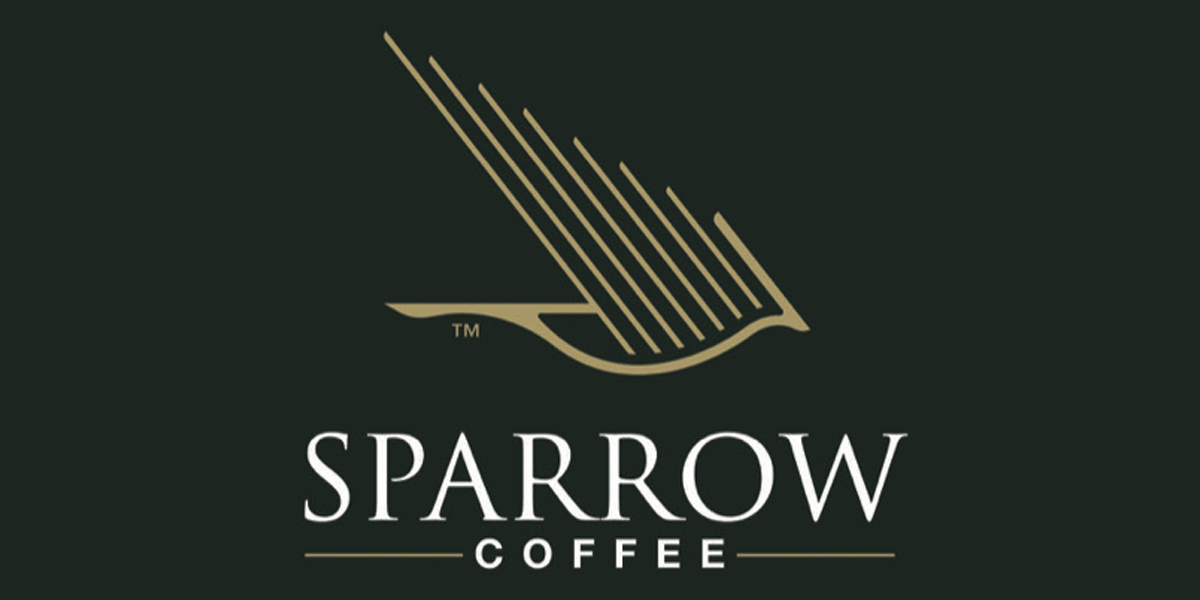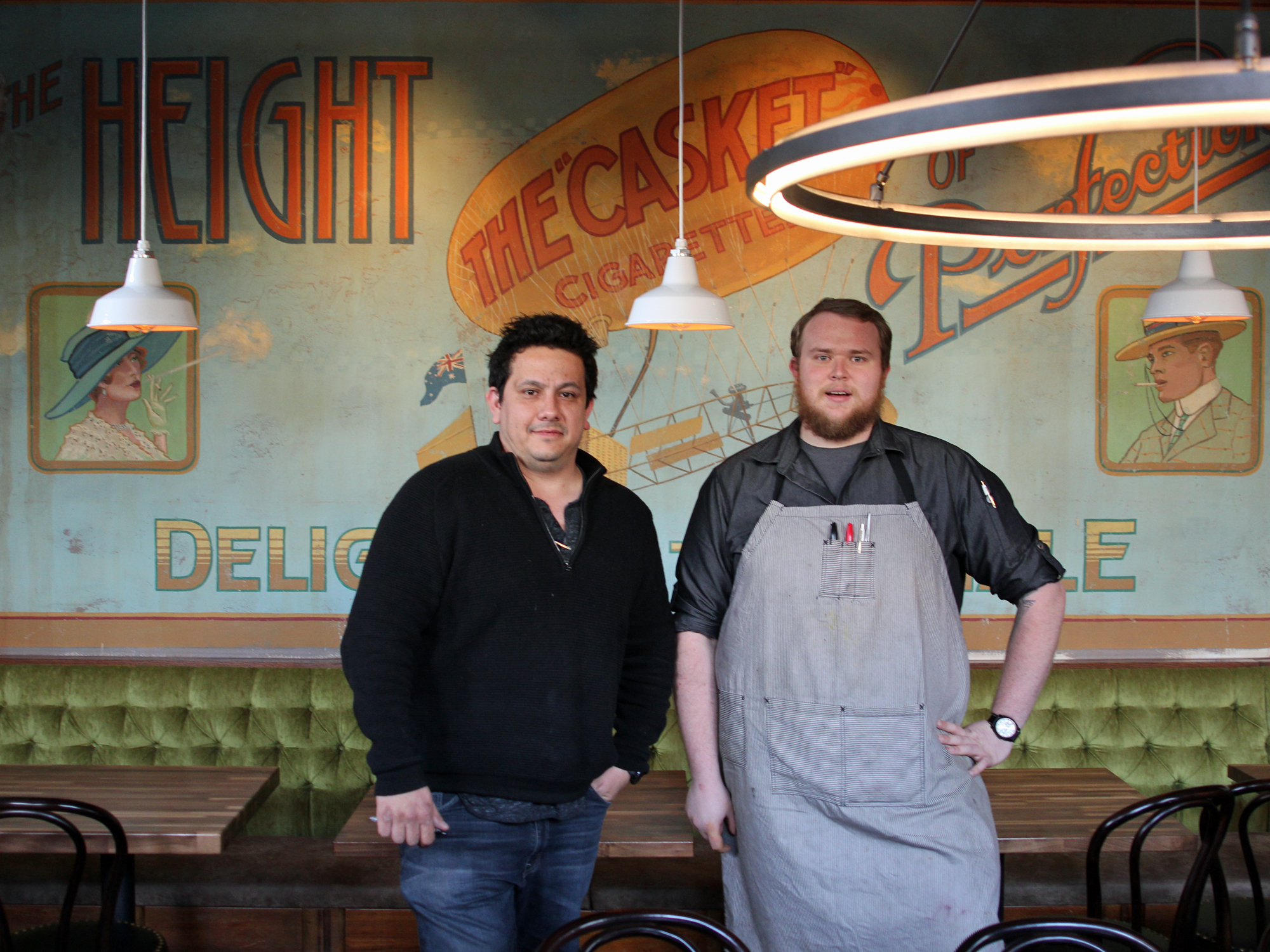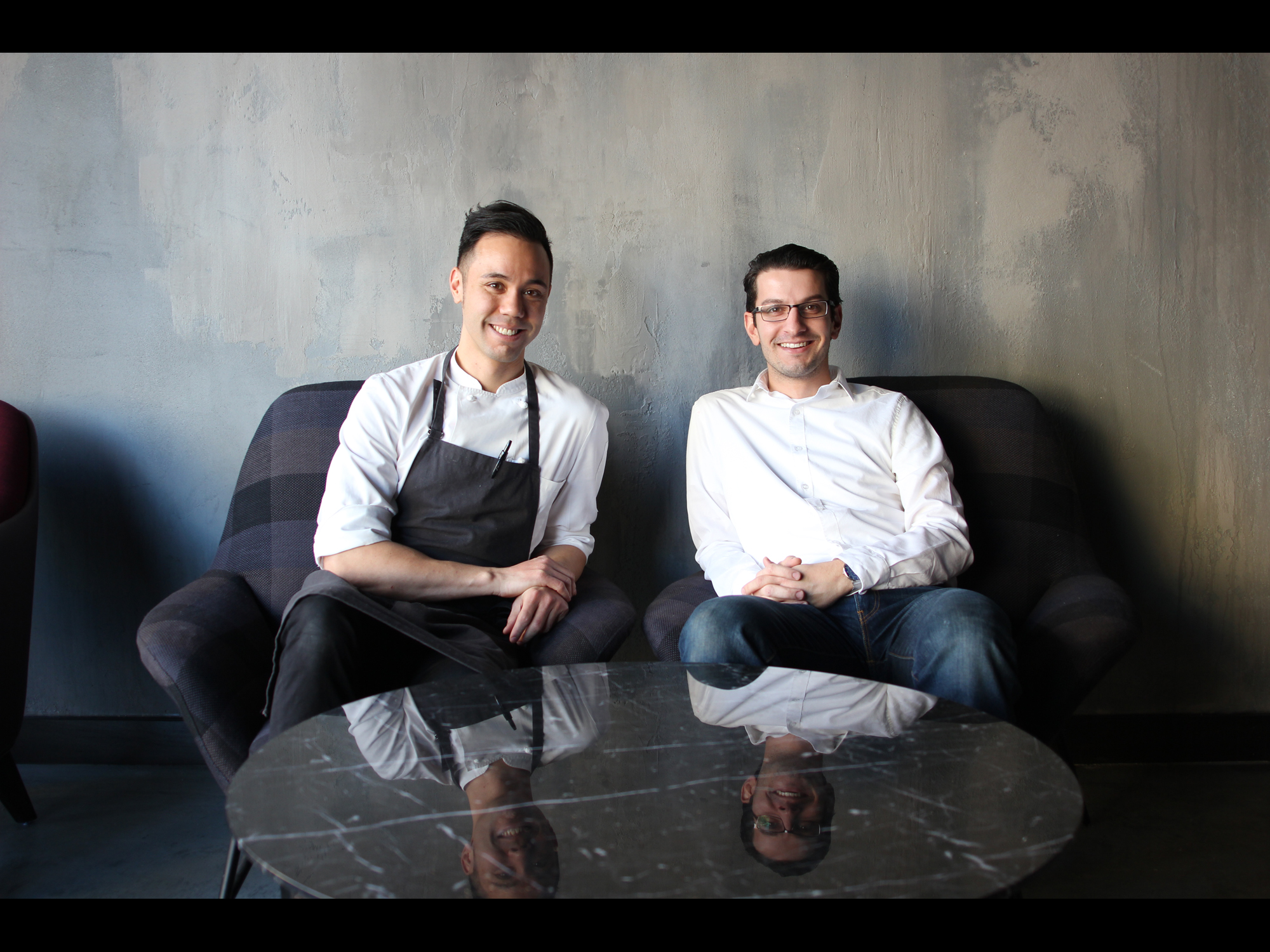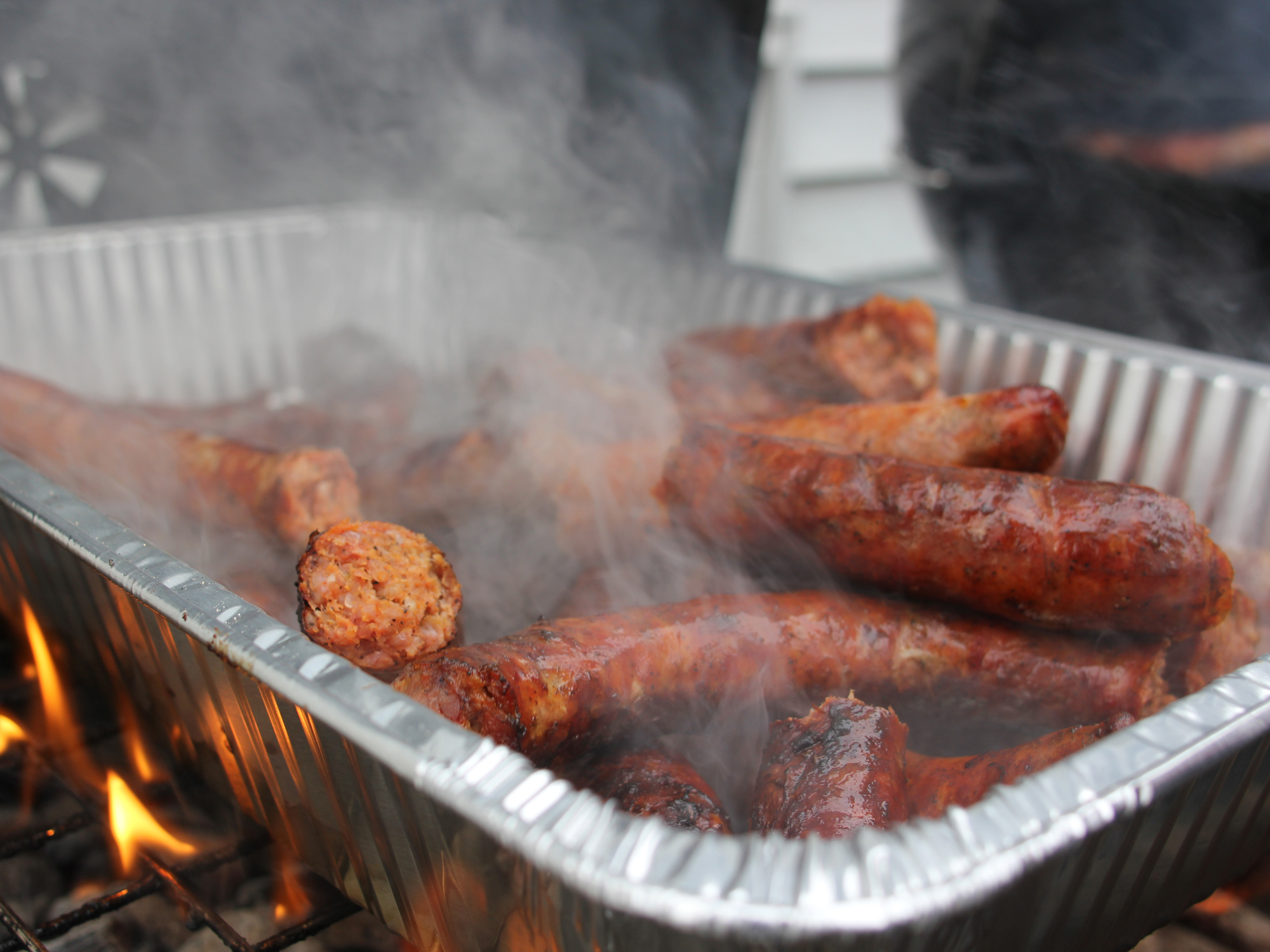BARELY OPEN A WEEK, TEMPESTA MARKET IS an attractive little sandwich, meat and cheese shop along Grand Avenue, near Green Grocer and other boutique businesses for the residents of that part of West Town. Wooden tables, a painting of the logo (Ariel from The Tempest conjuring up a storm, one assumes), a surprisingly upscale collection of chef books (feel free to leaf through the five volumes of Modernist Cuisine while enjoying your sandwich… actually don’t, the sandwiches are pretty messy).
And then you see it.
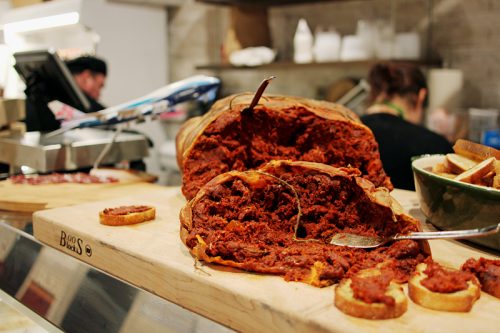
‘Nduja. Try it!
It’s a blob, gruesomely carved open, some kind of meat but glowing with a reddish-orange tint that can only come from spice, lots of it. (For some reason, on my second visit there’s also a model of an jetliner next to it, only adding to the curiosity it evokes.) If you know the story behind the shop, you know what this is—’nduja, the spreadable Calabrian salami that built owner Antonio Fiasche’s retail line, ‘Nduja Artisans. If you don’t know what it is, well, you’re going to be like the older gentleman from the neighborhood who wanders in while I’m taking pictures at the front table, and is cajoled into having a taste—and then kind of seems lost, not sure if he’s just been conned into eating something dangerous, or if his life has just changed forever.
I ask Tony Fiasche if people knew what ‘nduja was when he first offered it. “People still don’t know what it is,” says Fiasche. “It’s strong in the restaurant community, chefs. And it’s growing, you’re seeing it in recipes. We still haven’t hit the top—when you start seeing it on cooking channels, that’s going to be the tipping point.”
I ask him how it can be cured and be so spreadable at the same time. “Lots of fat, lots and lots of fat,” he says. “Spicy pork butter. Not counting the peppers, it’s about 80 to 20 percent fat to lean. The opposite of the hard salamis.”
“Because of the consistency of it, it’s a great ingredient. I call it the Italian fish sauce,” he says. “You can add a little dollop into something, mix it in, people can’t put their finger on it. You have a soup at home, you just want to kick up a little bit, throw it in, it’ll melt right in. And you’re just adding a ton of flavor.”
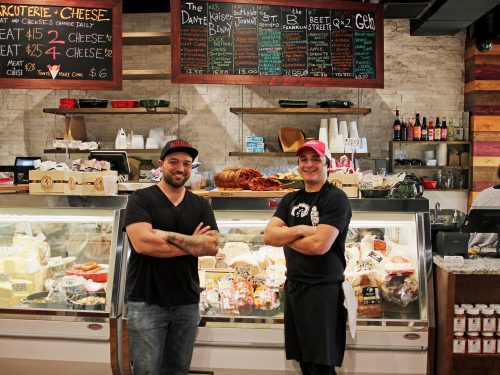
Owner Tony Fiasche and chef Mike Rivera
TONY FIASCHE’S PARENTS HAVE OWNED an Italian restaurant on the West side, Ristorante Agostino, for 32 years. “I was born there, pretty much,” he says. “They opened the restaurant when I was two.”
“There’s a picture of him with a white napkin tied around your head, holding a giant pot, white T-shirt and checked pants,” says Tempesta’s chef, Mike Rivera.
“He’s really cute in it,” says Darin Latimer, the restaurant’s manager.
“Before child labor laws,” says Fiasche.
The restaurant offers a fairly typical Italian menu, but the family’s dedication to Italian cookery at home goes well beyond the restaurant’s offerings, to cured meats at home—typical for Italian families in Chicago.
“My grandfather, he’s been curing meats in Calabria for the better part of 75 years. And generations before that,” says Fiasche. “We used to make stuff at home, we used to make salamis and stuff like that. Never for the restaurant, never for sale, just kind of dried sausages for the house. Soppressata, capicollo, ‘nduja. My father’s from Calabria so he made those, but we’ve expanded into the other regions of Italy.”
Fiasche grew up working in the restaurant, and then seeking to get other kinds of restaurant experience, went to work for Publican Quality Meats as a chef for private events. That would probably give encouragement to anybody who thought you could make a business out of cured meats, but Fiasche says the real inspiration to start making ‘nduja came from closer to home.
We’re not in competition with other sandwich shops. Anybody but us using our meats, they’d have to charge $25 for a sandwich.
“I have to give credit to my dad,” he says. “One of our customers brought in an ‘nduja that was being made here, and he tasted it and he said ‘This is not what it’s supposed to be like. How much are they charging for this?’ And my grandfather came over from Calabria, they were messing around at the restaurant—actually, they were drying stuff at my house, first, in my basement. Then we built a curing fridge above the restaurant—this was about six years ago. And the end of 2013 is when we made our first USDA batch.”
“Eataly was our first restaurant customer, we only had ‘nduja at the time. About six months later we started doing some dry sausages, some soppressata. We’ve now expanded—we’ve got close to 25 SKUs [individual items].”
Meats at Tempesta Market
Photos by Michael Gebert
Expansion has come at a rapid pace—from the original factory and office on Harlem, they’ve now expanded into a larger facility in nearby Franklin Park. While ideas for new products come from customers, ranging from Zingerman’s in Ann Arbor to restaurant clients in Vegas.
Both finocchiona (which is Tuscan, made with fennel) and mortadella (from Bologna, which is pretty much what we call it in America) came from tryouts for clients—Fiasche notes that in neither case did they actually make the sale, “but we liked them, so we kept making them.” One where they did succeed was the Spanish cured sausage sobrasada. Jose Andrés wasn’t impressed with the sobrasadas available in the U.S., and asked them to give it a try for his Vegas restaurant Jaleo—and he bought it.
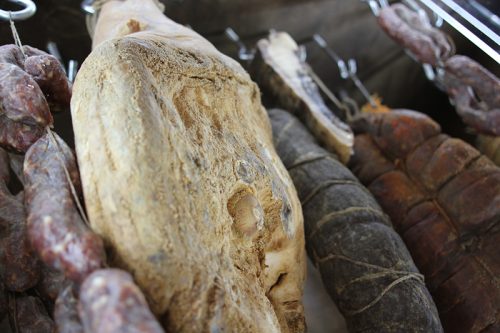
They lay out a spread of meats on the boards for me to photograph and taste. There’s an impressive variety of flavors, from spicy salumi to rustic pâtés, but what they all have in common is that distinctive Italian cured taste—funky yet mellow, without the chemical harshness of American commercially cured salamis. This is pork which had the time to develop its flavors naturally. Amidst all of that, Fiasche brings out a ringer—a blood sausage, as dark as chocolate cake, fried in a pan. Coming after so much cured meat, the fresh sausage is eye-opening, with subtle spicing that almost conjures up Chinese food for me. There’s a lot of flavor going on in this little shop, is all I can say.
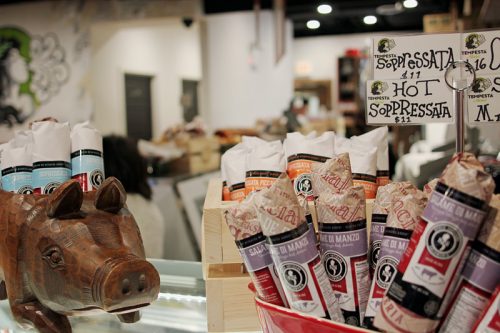
AND THEN THERE ARE THE SANDWICHES. Six, to be precise. My first question for Fiasche on that is why he chose to open an Italian sandwich place… on the most Italian sandwich-place rich stretch in the city: Bari Foods, D’Amato’s Bakery and Vinnie’s Sub Shop all serve creditable Italian subs within a few blocks to the east.
“Well, we’re not in competition with other sandwich shops,” he says. That sounds at first like bluster, but he has a good point: “Anybody but us using our meats, they’d have to charge $25 for a sandwich.” And the sandwich shop exists in part as showroom for their line of meats—a place where they can bring chefs in and let them taste the goods, with a kitchen and everything else they need to make a sale. They really are in a different business from their neighbors.
More than that, though, the sandwiches aren’t really like most Italian subs so much as they’re like composed dishes that happen to be on bread. The Southside Johnny, for instance, puts porchetta and broccoli rabe on a sandwich with Brun-uusto cheese. And chimmichurri. And pickled fennel. And rosemary broth. The complexity and balance of flavors suggests Publican Quality Meats, where Fiasche worked—and, as it turns out, so did both of his closest collaborators in the business.
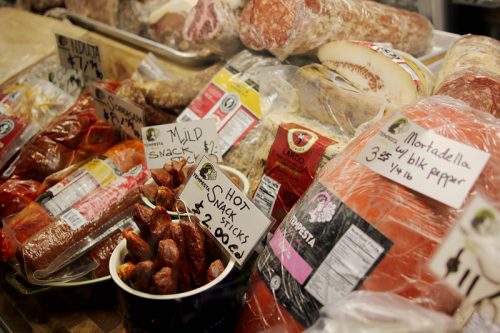
“I GREW UP IN THE SAME NEIGHBORHOOD as him, and my parents used to go to his restaurant, so that’s kind of cool,” says Mike Rivera, the chef.
He continues, “I worked in a restaurant, when I was 15, that my uncle runs. That’s where I got my start, and he recommended me to go to the Culinary Institute of America in New York. Then I moved back here and I got a job working at PQM. Tony asked me if I wanted to work part time in his meat processing facility, so I went over there to work with him. It was just Tony and me and Lalo, the longtime bus boy at the restaurant, doing everything.”
Fiasche’s young at 34, but Rivera’s even younger, and it’s clear that he regards Fiasche as a mentor. “We worked together at PQM, that’s how we met. I don’t know if he was picking on me because I was green or what, but we had food runners, and one time I asked one on the other side of the kitchen to grab me some bread. And Tony said, hey man, grab your own fuckin’ bread. That really struck me, and it’s always something I remembered—don’t be lazy, take the extra step, do it on your own. Working around him has made me understand the work ethic. Seeing it with Tony really spoke to me, that he was someone I really want to work for.”
When Fiasche told him he was starting a deli, “I quit my job two hours later,” Rivera says. The business wouldn’t be open for months, “so I just worked in the meat processing facility with a couple other CIA graduates, and we just spent the summer recipe testing and working on all the sandwiches. We came up with a really solid opening for us to be successful, nothing too hard.”
“I’ve been working ten years, unlike a lot of 25-year-olds in this position who’ve been working three years,” Rivera says. “A lot of people get taken aback when I hold the line, it’s rough, everyone’s older than me, but as long as they see what I’m doing, what Tony’s doing, what Darin’s doing, they kind of come along.”
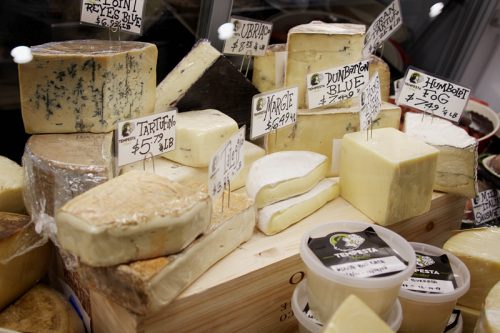
The first time I walked into the shop, I recognized Darin Latimer, the third of this band of brothers, though I wasn’t sure from where—I just knew that his butcher shop’s looks and sardonic demeanor were familiar from somewhere. The answer, it turned out, was everywhere—besides PQM, I’d probably seen him at Local Foods, Panozzo’s, maybe even Zingerman’s back in the day.
“Like these guys, I was born into the biz,” Latimer says. I grew up in a butcher shop-slash-liquor store-slash-grocery store. I was my father’s wine and spirits buyer when I was 13 years old, and I was credible, because they’d say how can you buy liquor when you can’t drink and I’d just—” [arches eyebrows for dramatic effect].
“That was when you could throw sawdust on the floor and reinject blood into meat, I’m amazed we didn’t kill anybody,” Latimer says. “But he was kind of doing what these chichi butcher shops are doing now. It was all whole animals—it was real butchering. Like a lot of family businesses, it kind of imploded— it was like a party store King Lear, and I was Cordelia. I just said, I’m going to go work somewhere that I love.
“I started at age 32 at Zingerman’s as a runner, a high school kid job. So I was running the joint inside of six months, and I stayed there for 11 years. I’m still on the menu there—double zero, ‘D-$’s Cuban Conundrum.’ Second best sandwich in America, or at least it was till this place opened.”
“Good catch,” Tony says.
Latimer—who at one point offhandedly refers to his agent in Hollywood, quickly followed by pointing out that he is a “wholly unproduced screenwriter”—may be responsible for the literary bent of the place; at least he’s the one who, when I ask why one of the sandwiches is “number 253,” points out that that was Martin Scorsese’s address growing up in Little Italy.
“I’m really pleased to be in business with these two, because I steal the essence of young people,” Latimer says. “We’re doing the Lord’s work here, the product is stellar, and we have six perfect sandwiches. When I first tasted The Dante, after I wept away a few tears, I said, there’s no fucking way we’re calling this an Italiano.”
Because it deserves better, I ask? “Yeah. Actually, my mother almost named me Dante, so it’s my revenge on her.”
Michael Gebert is the Prospero of Fooditor.
Fooditor will return in the new year.
Latest
Join the Discussion
After you comment, click Post. If you're not already logged in you will be asked to log in or register with Disqus.








